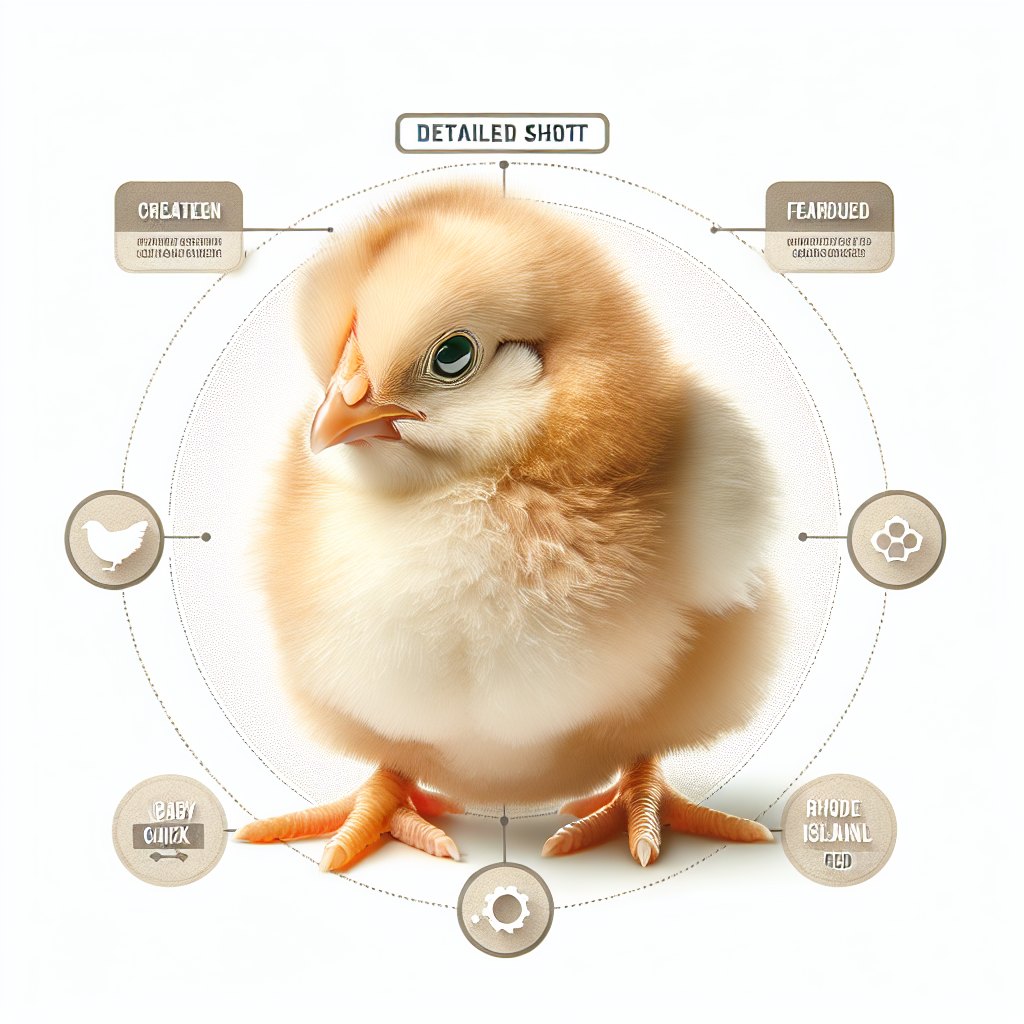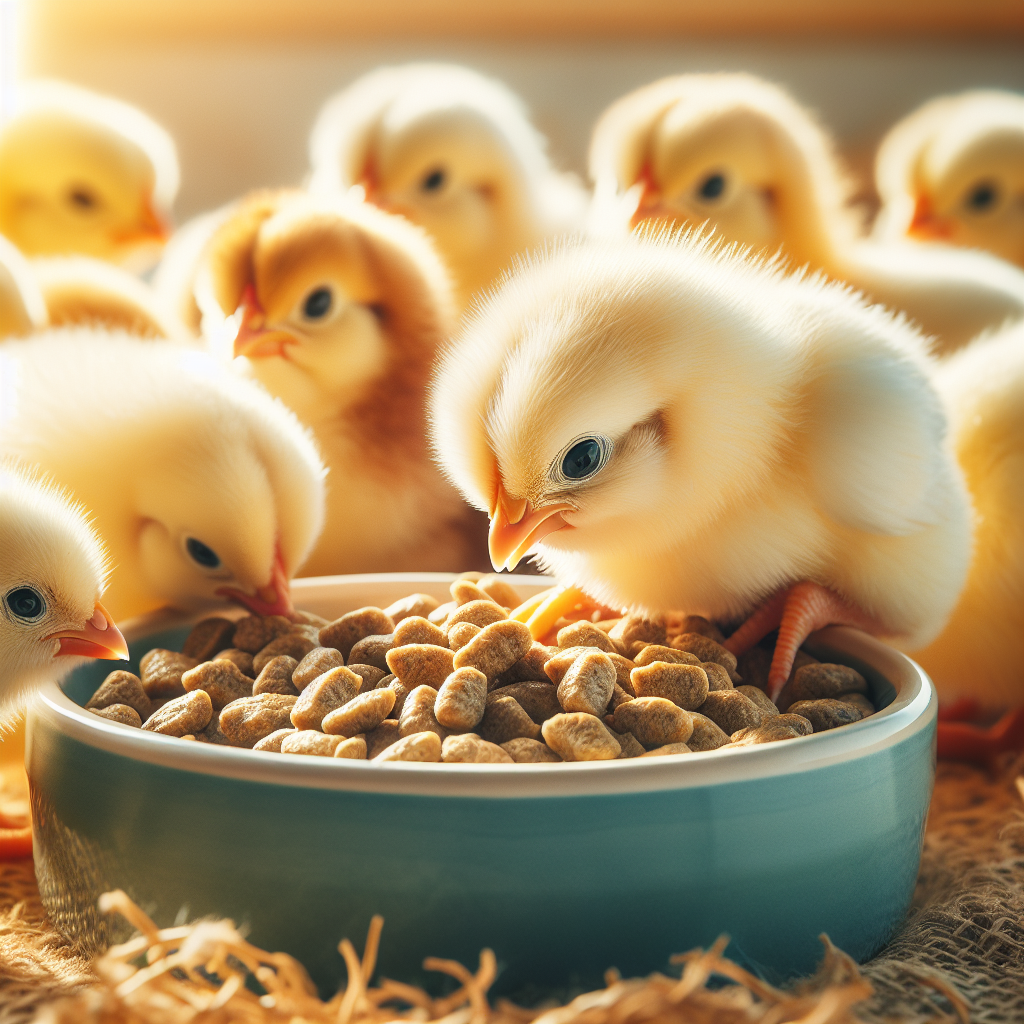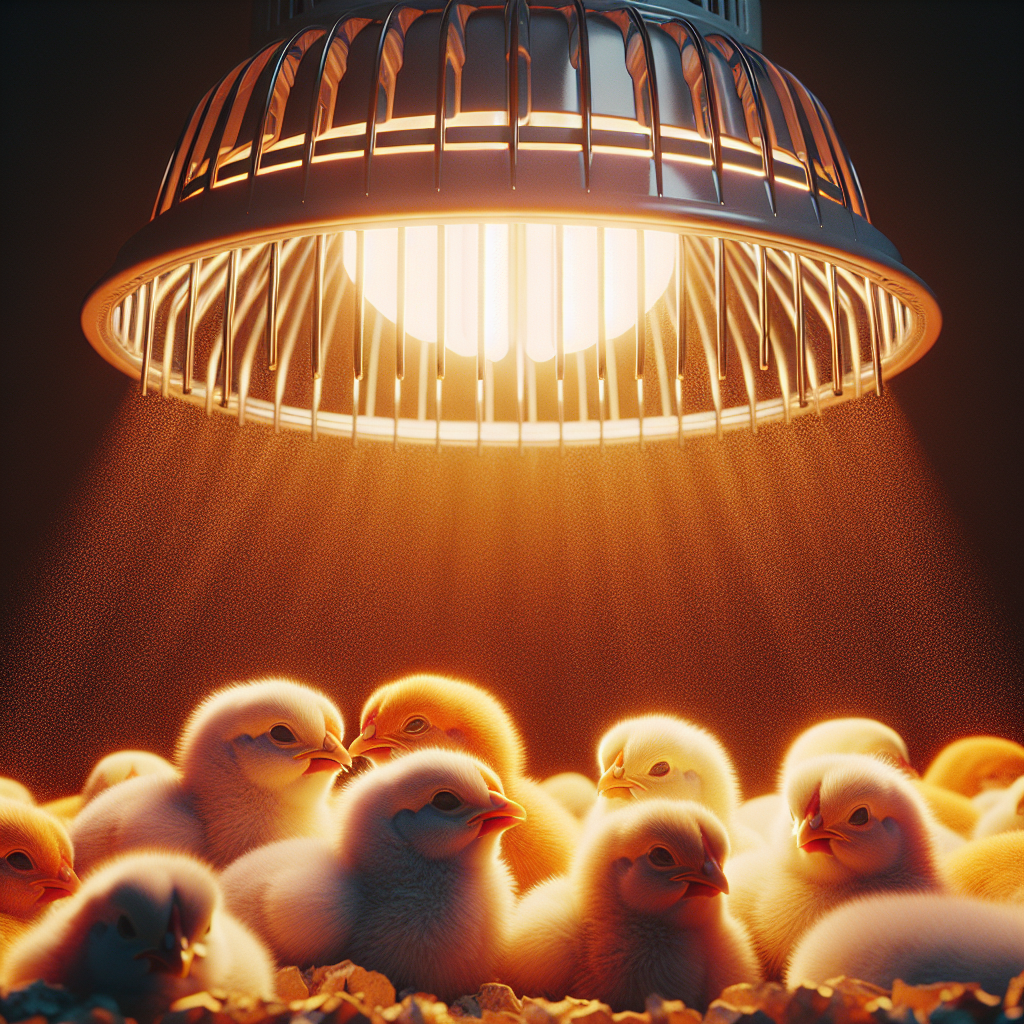You’re considering raising baby chickens but you’re not sure if they have different housing needs compared to adult birds. In this article, we’ll explore whether baby chickens require specific accommodations separate from their grown-up counterparts. Whether you’re a first-time chicken owner or looking to expand your flock, understanding the unique housing requirements for these adorable fluffy creatures is crucial for their health and well-being. Let’s uncover the answers together and ensure your baby chicks have a comfortable and safe living environment.
Spacing
Coop Size
When it comes to housing baby chickens, one of the most important considerations is the coop size. While baby chickens are small, they grow at an astonishing rate, so it’s crucial to provide them with adequate space right from the start. The general rule of thumb is to allow 2 to 3 square feet of space per chick inside the coop. This will allow them to move around comfortably, spread their wings, and exhibit natural behaviors. Providing sufficient coop size ensures that the baby chickens have enough room to grow and develop without feeling cramped or stressed.
Perch Space
Although baby chickens might not immediately need perches when they are first introduced to their coop, it’s still a good idea to include them. Perches provide a sense of security and a place where chickens can roost and rest. As baby chickens grow, they will naturally start exploring perches, so having them available early on is beneficial. Aim for perches that are around 2 inches in diameter for baby chickens. Ensure that there is enough perch space for each bird to comfortably roost without feeling overcrowded. Providing adequate perch space encourages natural behavior and also helps prevent the development of leg problems.
Security
Predator Protection
Keeping baby chickens safe from predators is of utmost importance. Even though they may be small and vulnerable, baby chickens are attractive targets for animals like raccoons, foxes, and hawks. To ensure their safety, it’s essential to secure the coop with appropriate predator protection measures. This can include installing sturdy wire mesh or hardware cloth around the coop, burying it along the perimeter to prevent digging animals from entering, and reinforcing windows and doors with additional locks or latches. Regularly inspect the coop for any potential weak spots or gaps to minimize the risk of predator attacks.
Escape Prevention
Young chicks are extremely curious and agile, which makes them prone to escaping their designated areas. To prevent them from escaping, it’s important to make sure that the coop is escape-proof. This can be achieved by using smaller mesh or chicken wire for any openings that could potentially allow chicks to squeeze through. Additionally, ensure that there are no gaps or holes in the fencing or walls that could be an easy escape route for the baby chicks. Regularly inspect and maintain the coop to ensure that it remains secure and escape-proof at all times.
Temperature Control
Heat Source
Baby chickens require a warm and stable environment, especially during their first few weeks of life. Providing a reliable heat source inside the coop is crucial for their well-being. One popular option is to use a heat lamp or a brooder plate. These devices emit warmth and simulate the heat provided by a mother hen, creating a cozy and comfortable environment for the chicks. It’s important to place the heat source at an appropriate height, ensuring that it provides enough warmth without overheating the chicks. Regularly monitor the temperature in the coop and make adjustments as needed to maintain a consistent and suitable environment.
Ventilation
While maintaining a warm environment is important, it’s equally crucial to provide adequate ventilation inside the coop. Good ventilation helps remove excess moisture, ammonia, and odors from the coop, ensuring a healthy and comfortable living space for the baby chickens. Proper airflow helps prevent respiratory issues and reduces the risk of pests and diseases. Ventilation openings should be strategically placed to prevent drafts on the chicks while ensuring fresh air exchange. Balancing temperature control and ventilation is key to providing optimal conditions for the baby chickens’ growth and development.
Bedding
Materials
Choosing the right bedding material is essential for the comfort and well-being of baby chickens. There are several options available, including straw, wood shavings, and shredded paper. Each material has its pros and cons, so it’s important to consider factors such as absorbency, dustiness, and ease of cleaning. Wood shavings are a popular choice as they provide good absorbency, are relatively dust-free, and are easy to clean. Avoid materials that are potentially toxic, such as cedar shavings. Remember to regularly clean and replace the bedding to maintain a clean and hygienic environment for the baby chickens.
Depth
The depth of the bedding plays a crucial role in maintaining a healthy and comfortable environment for baby chickens. Aim for a bedding depth of around 1 to 2 inches. This allows the chicks to easily navigate through the bedding while providing enough cushioning and insulation. Deep bedding can lead to leg problems and hinder the baby chickens’ movements, while shallow bedding might not provide adequate warmth and comfort. Regularly monitor and adjust the bedding depth, ensuring it remains suitable for the age and size of the baby chickens.
Feeding
Specialized Feed
Baby chickens have specific dietary needs to support their rapid growth and development. It’s important to provide them with specialized chick feed specifically formulated for their nutritional requirements. Chick feed is typically high in protein, vitamins, and minerals essential for their growth and feather development. It’s crucial to choose a reputable brand and ensure the feed is fresh and free from any contamination. Proper nutrition plays a vital role in the long-term health and well-being of baby chickens.
Feeder Types
Providing appropriate feeder types is essential to encourage healthy feeding habits in baby chickens. Choose feeders that are easily accessible and designed to minimize spillage and waste. One popular option is a gravity feeder that allows chicks to access feed at all times. Another option is a shallow dish feeder, which works well for small chicks that might struggle to reach into deeper feeders. Consider the number of baby chickens and their feeding behavior when selecting feeder types to ensure that all chicks have easy access to food.
Watering
Shallow Containers
Baby chickens require access to clean and fresh water at all times. To ensure they can easily access the water, provide shallow containers or waterers that are low enough for them to reach comfortably. Avoid deep containers that could pose a drowning risk for the young chicks. Shallow containers should be placed at an appropriate height to prevent contamination and spillage, while still being easily accessible for the baby chickens. Monitor the water supply regularly to ensure it remains clean and free from any debris.
Clean Water
Maintaining clean water is essential for the health and well-being of baby chickens. Regularly clean and refill the water containers to prevent the growth of harmful bacteria or algae. Pay attention to any signs of contamination, such as feathers or droppings, and promptly clean the containers if necessary. Additionally, monitor the water temperature, especially during colder months, to prevent freezing and ensure that the baby chickens always have access to fresh, clean water.
Lighting
Natural Light
Providing access to natural light is beneficial for the overall well-being of baby chickens. Natural light helps regulate their biological rhythms and supports healthy growth and development. If possible, position the coop in a location that receives ample natural light during the day. Ensure that the coop has windows or openings that allow sunlight to enter. Natural light also stimulates vitamin D production, which is crucial for bone health in baby chickens. However, it’s essential to ensure that the coop has adequate shade to protect the chicks from excessive heat and direct sunlight.
Artificial Lighting
In certain situations, providing artificial lighting inside the coop can be necessary, especially during the winter months or in areas with limited natural light. Artificial lighting helps supplement daylight hours, ensuring the baby chickens receive enough light to maintain their normal growth and development. The use of a timer can be beneficial to mimic natural light cycles and provide a consistent lighting schedule for the chicks. Consider consulting with experts or experienced poultry keepers to determine the appropriate duration and intensity of artificial lighting for baby chickens.
Privacy
Separate Enclosure
Creating a separate enclosure for baby chickens within the existing coop or run is recommended to ensure their safety and provide them with a secure space to grow. This enclosure can be created by using wire mesh or temporary partitions. Having a separate area for the baby chickens allows them to acclimate to their new environment without being intimidated or threatened by adult birds. It also helps prevent potential injuries or stress caused by interactions with larger and more dominant fowl. Gradually introducing them to the adult chickens when they are older and larger can help minimize any conflicts or aggression.
Visual Barriers
To provide additional privacy and minimize stress, consider adding visual barriers within the baby chicken enclosure. This can be achieved by using large plants, boards, or landscaping features to create physical barriers that limit the line of sight between the baby chickens and adult birds. Visual barriers help create a sense of security for the young chicks and reduce the risk of them being pecked or bullied by the older flock. It’s important to regularly monitor the interactions between baby chickens and adult birds, removing any visual barriers once they have successfully integrated.
Accessories
Nest Boxes
Although not immediately necessary for baby chickens, providing nest boxes early on is beneficial for their future needs. Nest boxes provide a safe and comfortable space for the hens to lay their eggs. By introducing nest boxes to baby chickens, they become familiar with the concept and develop natural nesting behaviors as they grow. Depending on the breed and size of the chickens, choose nest boxes that are appropriate for their eventual adult size. Properly located and designed nest boxes can help ensure a smooth transition to laying eggs when the time comes.
Toys and Perches
Introducing toys and perches in the baby chicken enclosure can help stimulate their natural behavior and provide them with mental and physical enrichment. Simple items like hanging mirrors or pecking balls can keep them entertained and prevent boredom. Baby chickens will gradually start exploring perches, so providing various perching options of different heights and materials helps build their strength and coordination. Remember to regularly inspect toys and perches for any potential hazards or signs of wear and replace them as needed to ensure a safe and stimulating environment for the baby chickens.
Socializing
Chickens of Similar Age
Socializing baby chickens with others of a similar age is important for their social development. Young chicks naturally form bonds and learn important social skills through interactions with their peers. Ensure that baby chickens are housed together with others of the same age, as introducing older birds too early might lead to bullying or aggression. Providing opportunities for socialization at a young age helps foster positive social behaviors and allows the baby chickens to develop important bonds that will carry into their adult lives.
Introduction to Adults
Integrating baby chickens with the adult flock should be done gradually and at a suitable age. Introducing baby chickens too early to adult birds can lead to aggression and territorial behavior. Wait until the baby chickens are larger and better able to defend themselves before allowing direct interactions. Start by placing the baby chickens within the sight of the adult birds, allowing them to become familiar with each other without direct contact. Gradually increase the duration of supervised interactions until they can be safely integrated into the main flock. Proper introductions help minimize stress and ensure a smooth transition for the baby chickens into adulthood.
In conclusion, providing appropriate housing for baby chickens is crucial for their health, safety, and overall well-being. Consider their specific needs in terms of spacing, security, temperature control, bedding, feeding, watering, lighting, privacy, accessories, and socializing. By creating a comfortable and nurturing environment, you can help baby chickens thrive and lay the foundation for healthy growth into adulthood. Remember to regularly monitor and adjust the housing conditions as the baby chickens grow, ensuring their ongoing welfare and happiness.




